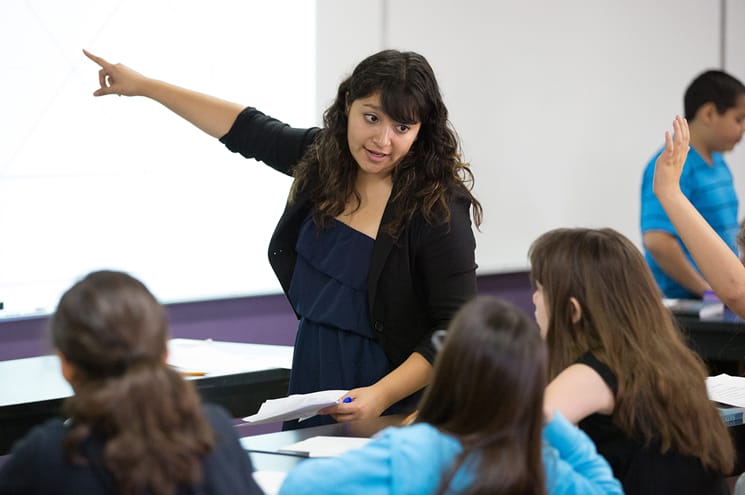Keeping the Dream Alive

New “Allies of Dreamers” Program to Meet Challenges of Undocumented Students; First Cohort Begins Training This Fall
The School of Educational Studies (SES) at Claremont Graduate University (CGU) has launched Allies of Dreamers, a pioneering program for educators and community leaders created in response to the needs of undocumented students and the immigration enforcement challenges posed by the Trump administration.
The first of its kind in the nation, this graduate-level certificate program will begin training its first group of educators, administrators, and other educational professionals this fall to address the challenges of the “Dreamers”—undocumented students covered by the federal Deferred Action for Childhood Arrivals (DACA) program—and other undocumented students and their families.
“Our department cares deeply about social justice,” said DeLacy Ganley, a professor of education at CGU who directs the university’s Department of Teacher Education and led the creation of the Allies program. “Since January, so many educators have been at a loss as to how they can help undocumented students in their school populations. I asked my colleagues, what if we create a program that gives educators the skill sets specific to these students?”
Allies of Dreamers is an eight-unit certificate program that can be completed in two semesters and can be applied to an SES master’s or doctoral degree.
The program trains educators in several key areas related to undocumented students—historical context, theoretical framework, mentorship and advocacy—as well as in law and public policy and the best practices to integrate these students in the classroom, on college campuses, and in society.
***
CGU is surrounded by Southern California counties—Los Angeles, Riverside-San Bernardino, and Orange—with large populations of undocumented immigrants. More than 400,000 undocumented immigrants live in Orange and Riverside-San Bernardino counties, while Los Angeles County alone has a population of more than 800,000. The university’s strategic location and the urgent needs of administrators and educators in Southland districts (many of whom are SES alumni) prompted Ganley and her colleagues to design a curriculum to address the situation.
Though the curriculum was formulated during the first six months of the presidency of Donald Trump, who made immigration enforcement and deportation a centerpiece of his presidential campaign, Ganley said the university was already thinking about teacher training related to undocumented students before the campaign’s anti-immigrant rhetoric heated up.
In 2015, Ganley secured a grant to create the Dreamers Coalition, a group of faculty from The Claremont Colleges, the University of California, and California State University schools, and several undocumented youths who have navigated the educational system, to provide a wider perspective on what kinds of issues the Allies curriculum should address.
She also turned to her colleague at CGU, William Pérez, a professor of education and a nationally-recognized expert on immigration policy and education, for help and insight in creating the program’s curriculum.
“When you have students and families living in constant fear of arrest and deportation, how do you help them? What does it mean to be a resource for them?” Pérez said. “Their lives have changed so quickly, and it is fortunate that we were already thinking about the Allies program and how to answer many of the questions that educators have.”
The Allies program started accepting its first applicants this summer; so far, Perez and Ganley report that a half-dozen graduate students in educational studies have registered for the first cohort this fall.
Both add that, aside from the needs of educators and administrators with undocumented student populations, the certificate program is also designed for higher education professionals interested in developing their expertise related to diversity, community engagement, and issues related to students identified as “at risk.”
“Currently some of the most at-risk students in our schools are those who are undocumented,” Ganley explained. “They need mentors who not only understand them and their realities but who have the right information to help them. It is so important to care and show concern for these students, of course, but it is even more important to turn these feelings of solidarity into practical actions. That’s what we designed our Allies program to do.”